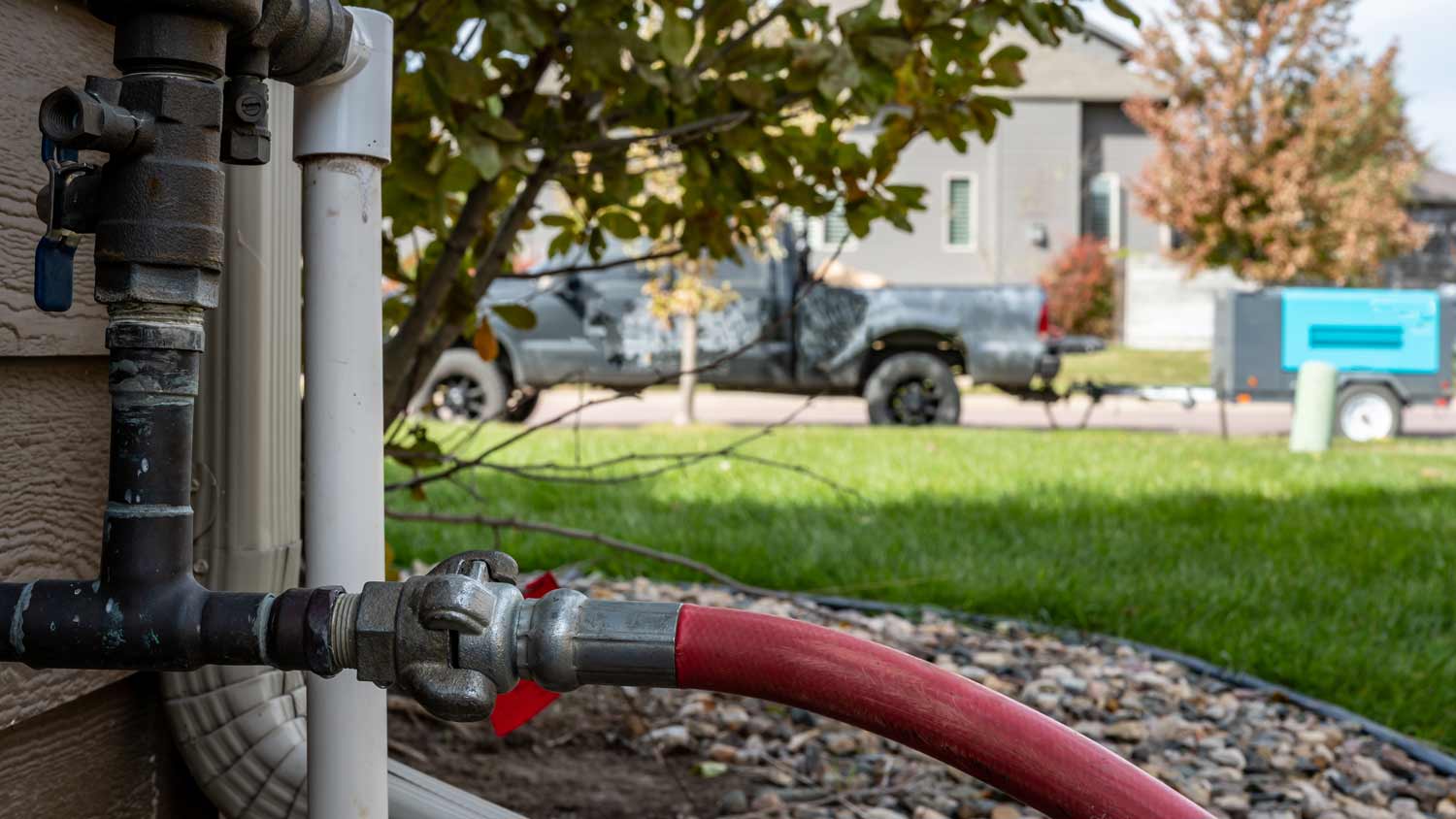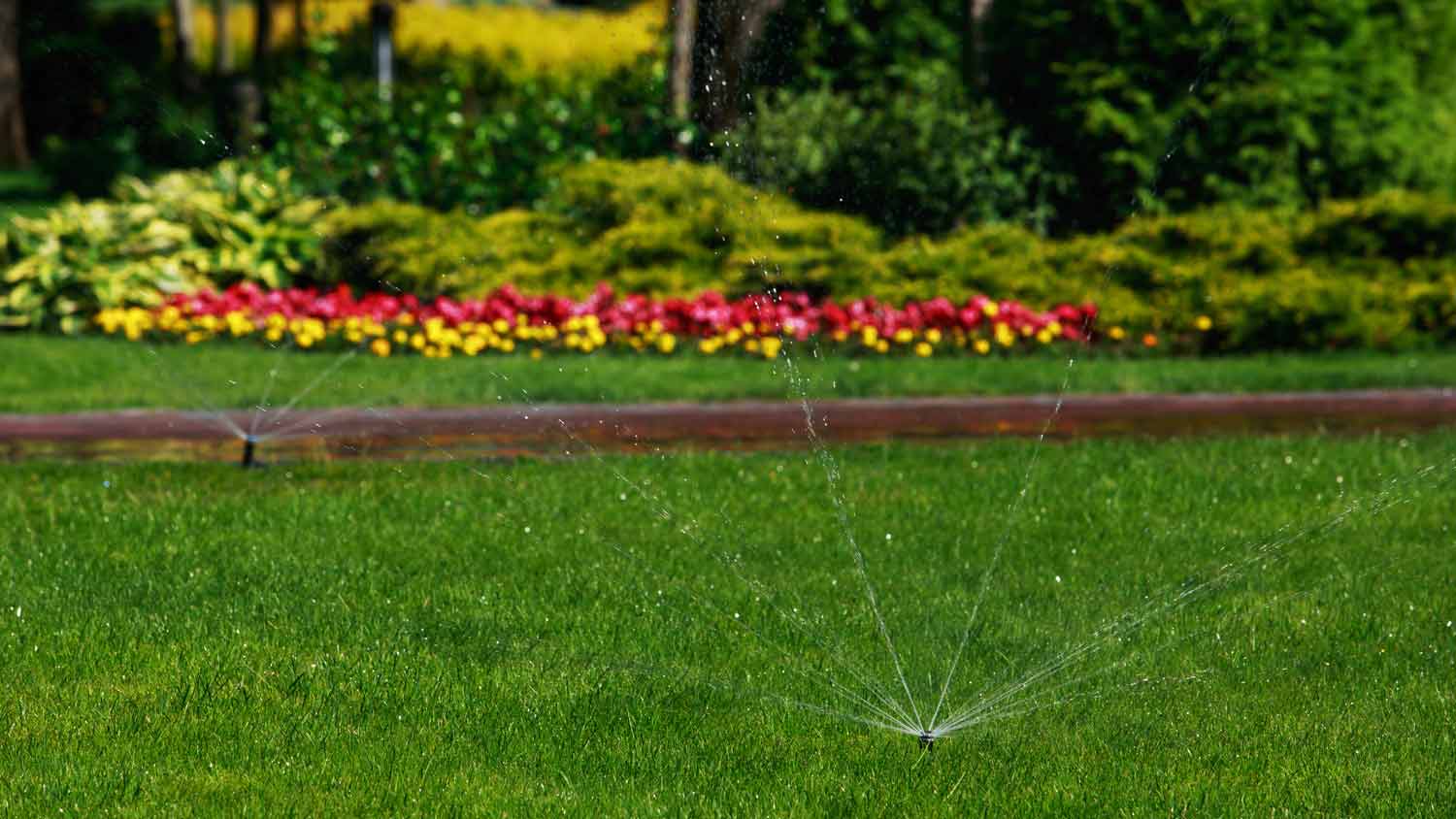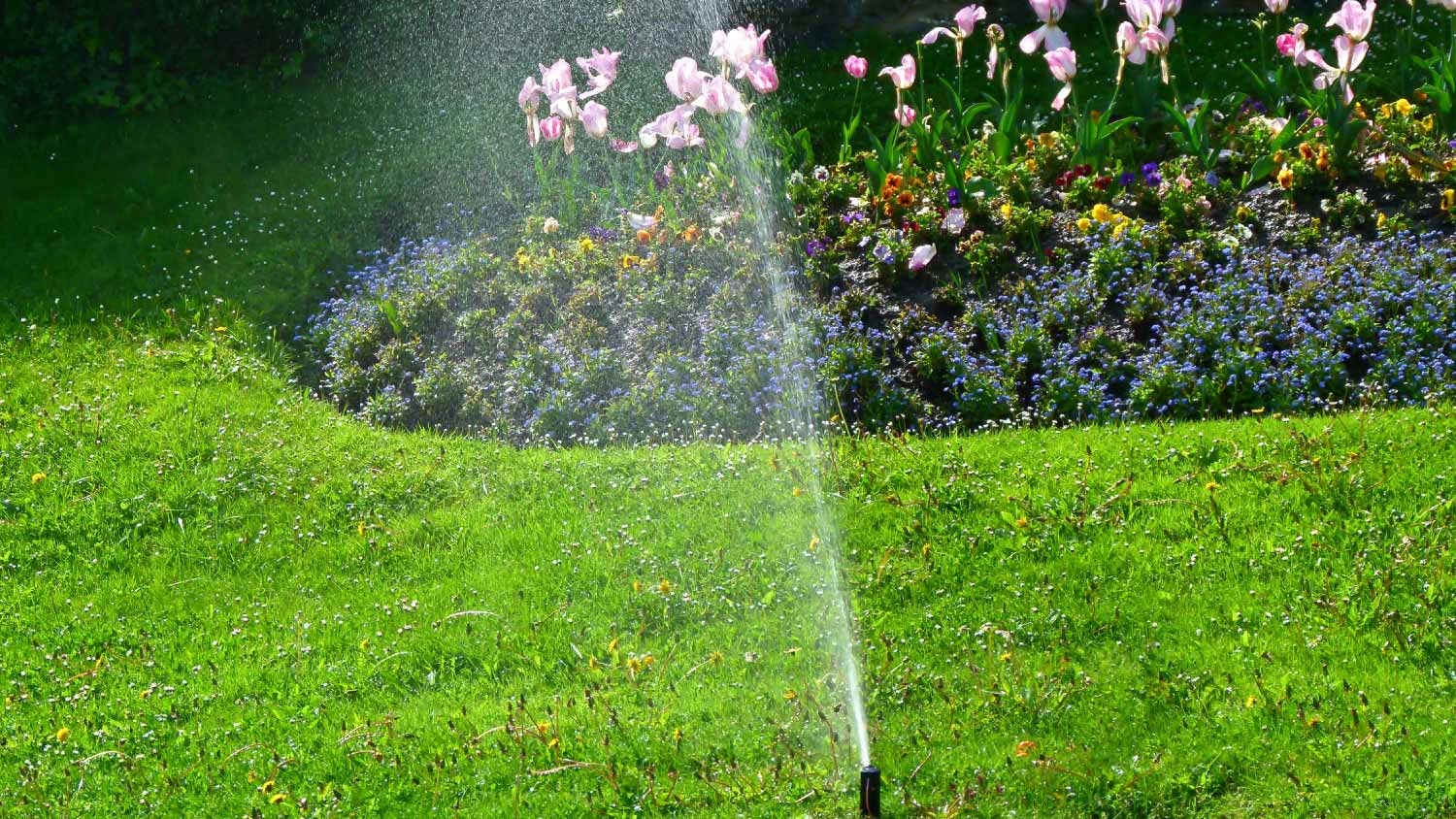Who Do I Hire to Turn on My Sprinkler System After Winter?
Seek out this specialist when Spring has sprung


Wondering who to hire to turn on your sprinkler system after winter? The best option is a sprinkler winterization specialist to perform spring start-up tasks. These sprinkler experts have an expertise in lawn hydraulics and sprinkler layouts that will ensure your system is ready for the new season. Let’s dig into the benefits of hiring the right pro to turn on your sprinkler system post-winter.
Benefits of Hiring a Sprinkler Specialist to Turn on Your Sprinkler System
While you can turn on a sprinkler system by yourself, hiring a sprinkler repair service near you to turn on your system after winter offers a few benefits.
Looking for leaks: A sprinkler system professional can find issues in your system while they’re out there, from leaky pipes to poor water pressure, saving you time and money.
Assisting with inspection: Some, but not all, municipalities require an annual inspection of your system’s backflow preventer, which a sprinkler repair service can do at the same time as turning on the system.
Perfecting water pressure: When you turn the sprinkler system on by yourself, you risk throttling the system with too much water pressure, which can damage sprinkler heads and pipes.
Choosing the right time: If you turn your sprinkler system on too early, there’s a chance a late frost will freeze the pipes, which could lead to cracks and damaged sprinkler heads. Irrigation professionals have a better sense of timing to prevent freezing pipes.
Can I Turn My Sprinkler System on by Myself After Winter?
Yes, you can turn your sprinkler system on yourself after winter, especially if you’re familiar with the system or have done so before.
But, there are a few instances when hiring a pro would be wiser. If you hired someone to winterize your sprinkler system, consider calling the same team to de-winterize it. If it’s a new system or you’re new to the property, it’s best to call a sprinkler repair service to inspect the system.
If you haven’t had the system inspected in a few years, even if your municipality does not require it, it doesn’t hurt to call a sprinkler professional to come out and look. You’ll sleep easier knowing your backflow preventer is in good order, all while getting the system ready for the next season of gardening.
However, if you winterized the system yourself and already had it inspected last fall, chances are you have a good feel for your irrigation system and can turn it on.
Can I Hire a Handyperson to Turn My Sprinkler On?
When thinking about who to hire to turn your sprinkler system on after winter, it’s wise to stick with professional contractors with experience in irrigation systems. That could be sprinkler technicians, sprinkler repair professionals, irrigation repair specialists, or sprinkler installation companies. Occasionally, a plumber may have the experience and qualifications to help turn your sprinkler system on after winter, but you’ll need to inquire further to understand their expertise.
Although it may be more affordable or easier to find, a general handyperson will not be the best fit for this project. Sprinkler systems have complicated hydraulic systems and engineering that require professional knowledge that generalists likely don’t have.
Additionally, if your municipality does require an annual inspection, a handyperson may not be certified to perform it.
How Do Sprinkler Professionals Turn a Sprinkler System On?

A sprinkler technician will start by walking the property and inspecting the system for any visible damage before they turn it on. They’ll get a feel for the system’s layout and find the main shut-off valve, vacuum breaker, and vacuum breaker test valves.
From there, it’s time to get started. Your pro will begin by closing the vacuum breaker test valves and opening the vacuum breaker shut-off valves. Then, they’ll reinstall the main valve bleeder cap. With each of these components opened, closed, or reinstalled, the system is ready to hold water again. The sprinkler technician will slowly turn on the main valve, likely using a tool to gauge the water pressure being released into the system. This is when experience comes in handy. A pro will better understand how much or how little pressure the system can take to get up and running without damage.
From there, your pro will manually test each zone for proper water pressure and functioning sprinkler heads. Here, they may catch faulty parts of the filter that need a good cleaning to work properly. Finally, they’ll check the valves to ensure there are no leaks and that the backflow preventer is working properly.





- Who Do You Call to Turn On a Sprinkler System? Hiring Guide and DIY Tips
- Do You Know Who to Call for Sprinkler Repair? What to Do When Your Irrigation System Is Out of Commission
- How Long Do Sprinkler Valves Last? Average Life Span and Impacting Factors
- Who Should I Call to Winterize My Sprinkler System?
- Sprinkler Water Valve Is Leaking: Common Causes and Signs
- How to Winterize Your Sprinkler System Without a Professional Blowout
- Sprinklers 101: The Key Parts of the Sprinkler System
- How to Design the Sprinkler System of Your Dreams
- Who Installs Sprinkler Systems? Learn Who to Hire
- How to Replace Sprinkler Heads to Irrigate Your Lawn Like a Pro















